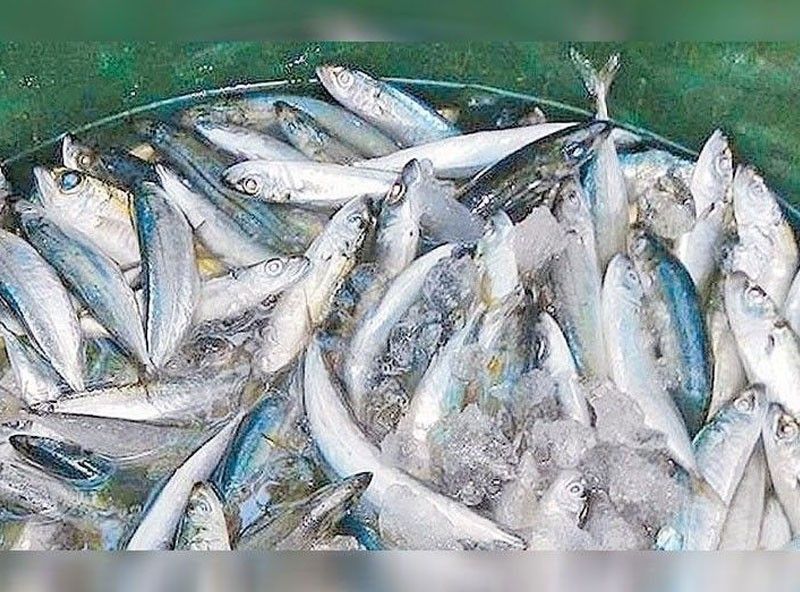Fish catch down since Balikatan – group

MANILA, Philippines — Fish catch around Panatag (Scarborough) Shoal has decreased since the start of the Balikatan exercises, which may have prompted the Chinese to send more vessels to the area and continue harassing Filipino fishermen, a local fishers’ group said yesterday.
“The bullying of the Chinese coast guard continues and their number increased right after the Balikatan,” New Masinloc Fishermen’s Association president Leonardo Cuaresma said in a radio interview.
The 39th Balikatan joint military exercises kicked off on April 22, and will last until May 8. Beijing has denounced the military drills, which include a joint sail by the naval forces of the Philippines, the US and France on the fringes of the West Philippine Sea.
“Before the tension, we have a good fish catch but when the Balikatan started, our fish catch decreased amid the presence of many Chinese vessels,” Cuaresma said.
He said fish catch in the past few days only totaled some 1.5 tons compared to some four tons last month.
“Based on my information, more than 30 Chinese militia, six Chinese Coast Guard and four Chinese Navy are still in the area,” Cuaresma said.
He confirmed that it was the CCG which removed the payao installed in the area by local fisherfolk and commercial fishing vessels.
“They (Chinese) were behind the removal of the payao in the West Philippine Sea,” he said.
He noted that fishers in his group spend at least P200,000 for fuel during a usual fishing activity in the West Philippine Sea.
“The fishermen spend at least five days but there are times that they only earn at least P3,000, but they have no choice as they cannot go to municipal waters as it is too crowded,” he said.
The bigger presence of the Philippine Coast Guard (PCG) and the Bureau of Fisheries and Aquatic Resources (BFAR) in the area, he said, has also encouraged Filipino fishermen to continue doing their trade in the Panatag Shoal area, which is off the coast of Zambales.
“Before, only two boats sail in the area but because of what the Coast Guard and BFAR were doing, our fisherfolk were persuaded to join the big fishing vessels in their operation,” Cuaresma said.
But he revealed his group, which has 40 members, has yet to receive assistance from BFAR under its Livelihood Activities to Enhance Fisheries Yields and Economic Gains from the West Philippine Sea.
“No assistance reached us. The last assistance we received was when Sen. Risa Hontiveros visited us last December,” he noted.
Monitoring Balikatan
While it is not clear if the Chinese have also expanded their presence in other fishing areas following the start of the Balikatan, Beijing’s ministry of national defense said it is closely monitoring the activities of the naval forces involved in the annual drill.
“The Chinese military is closely following relevant moves, and will resolutely respond with effective measures,” Senior Colonel Wu Qian, spokesman for China’s MND, said.
“We will never allow anyone to sow chaos (in) the South China Sea,” he said in a statement shared by the Chinese embassy in Manila.
Wu said the defense ministry opposes “external interference, muscle flexing, provocations and harassment in the South China Sea, and oppose piecing together exclusive circles or bloc confrontation.”
“It requires great wisdom to resolve the South China Sea issue. Drawing forces outside the region or countries not directly concerned into the issue will only further complicate the situation and make it harder to solve,” he stressed.
Wu said China always advocates a common, comprehensive, cooperative and sustainable security arrangement and remains a firm believer in the primacy of dialogue and consultation in settling difference.
China’s MND has also expressed concern over the US deployment of medium-range ballistic missiles in the Asia-Pacific, a development that “severely threatens the security of regional countries and undermines regional peace and stability.”
In a post on X by China’s Global Times, Wu was also quoted as telling the Philippines, Japan and the US of their “disregard of facts” by questioning Beijing’s South China Sea claims.
“The US-Japan-Philippines joint statement that expressed ‘serious concerns’ regarding the Ren’ai Jiao situation, and called China’s activities in the South China Sea and East China Sea ‘dangerous and aggressive’ disregards facts and confuses right and wrong,” the post said. Ren’ai Jiao is Beijing’s name for Ayungin Shoal, where the BRP Sierra Madre is positioned as Philippine military outpost. — Michael Punongbayan, Ghio Ong
- Latest
- Trending






























